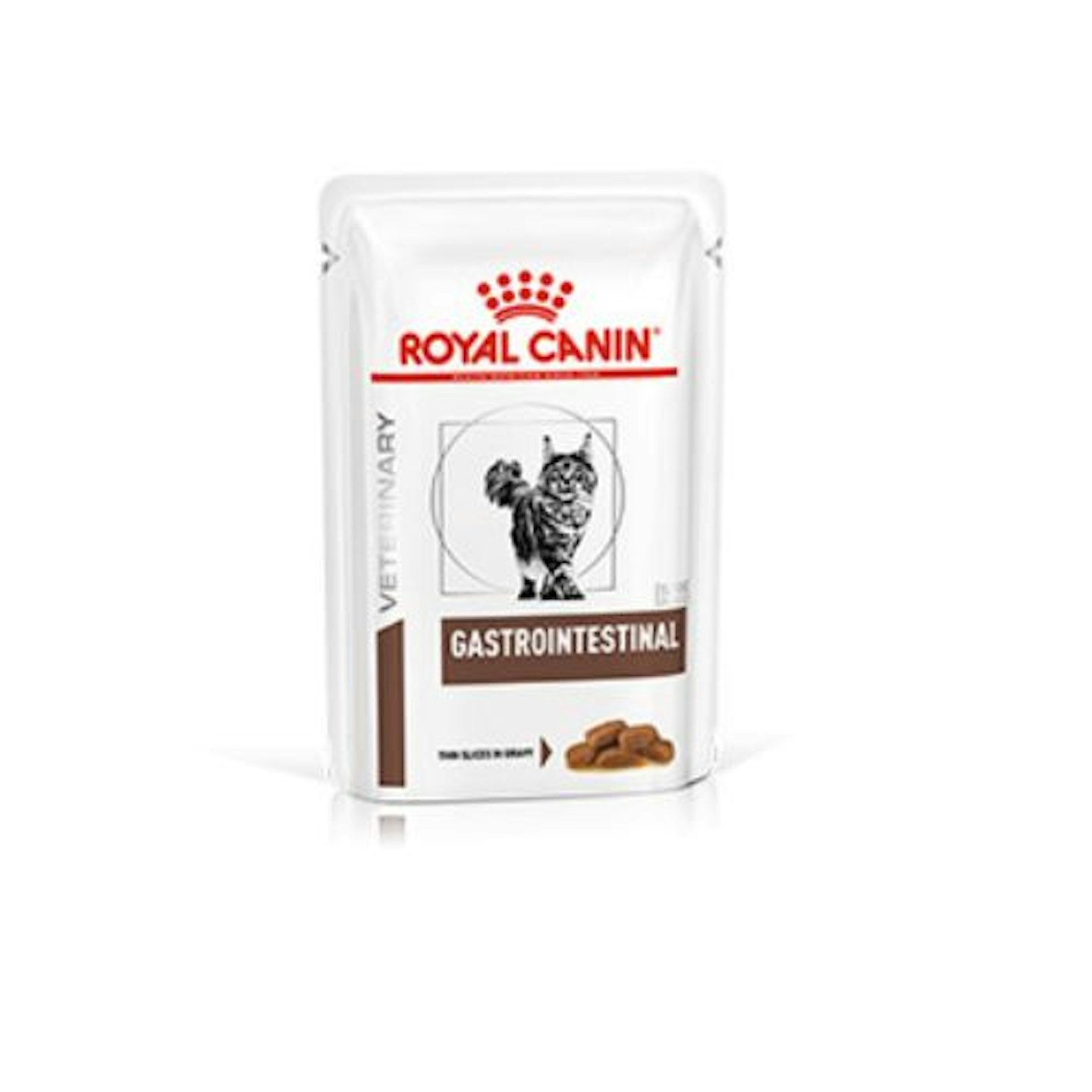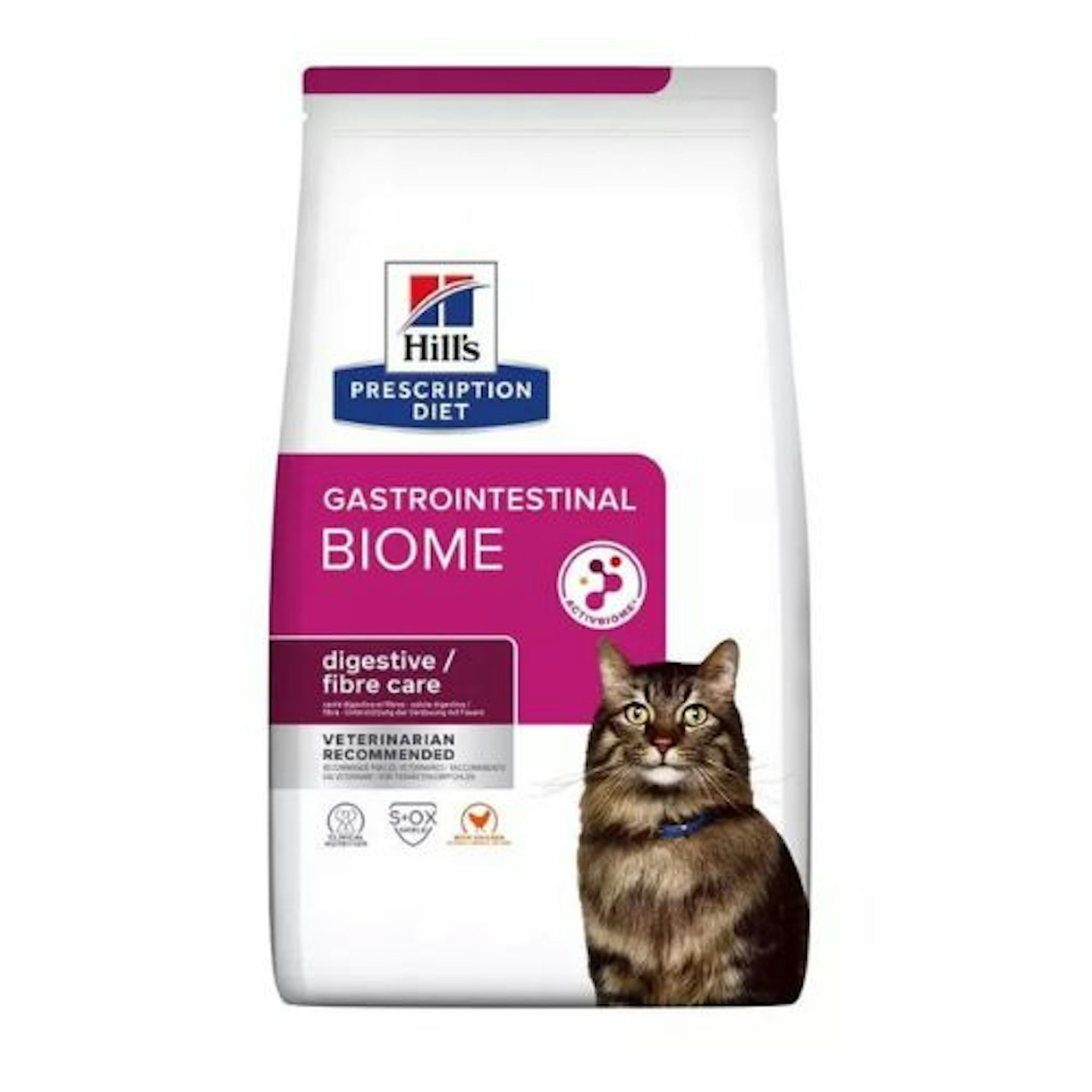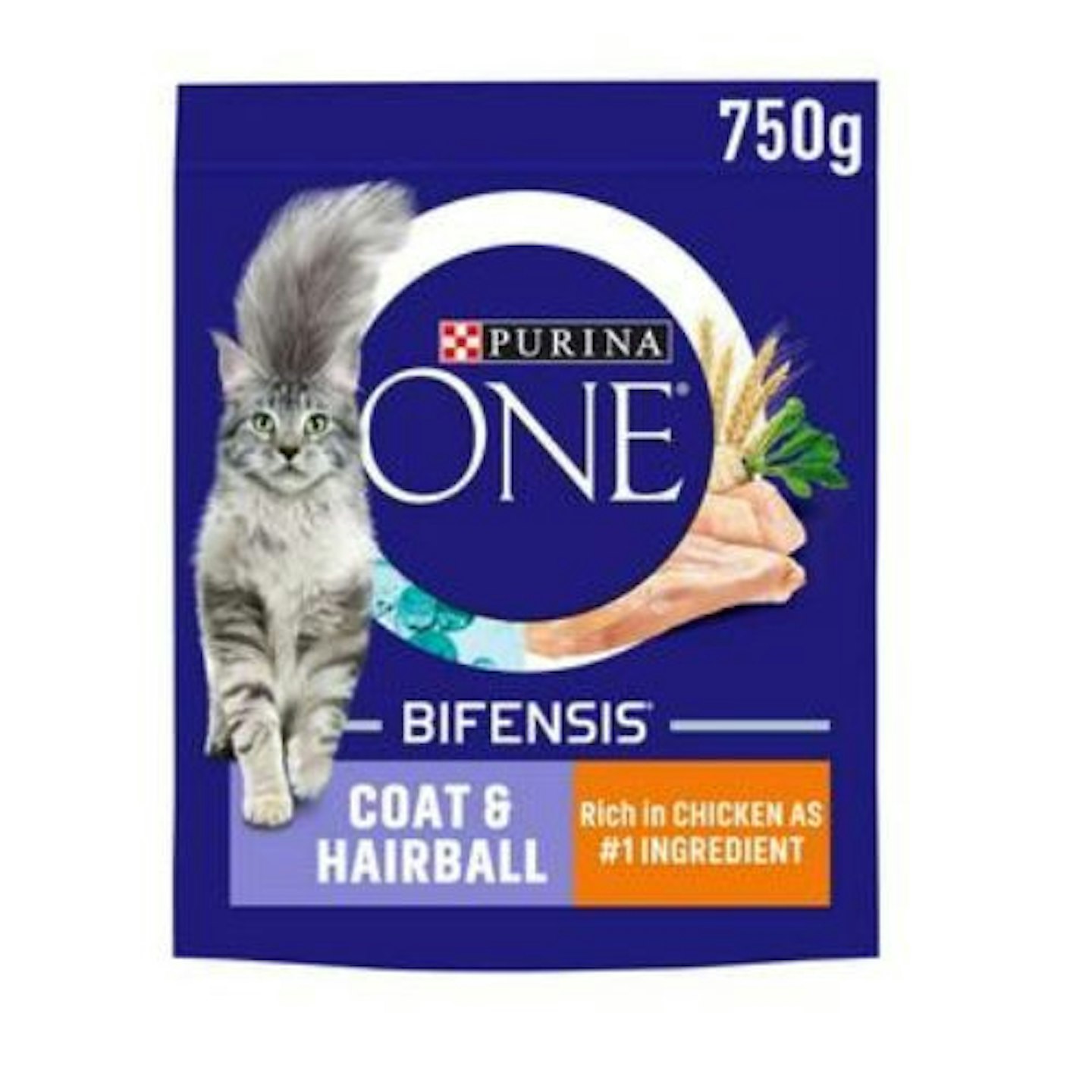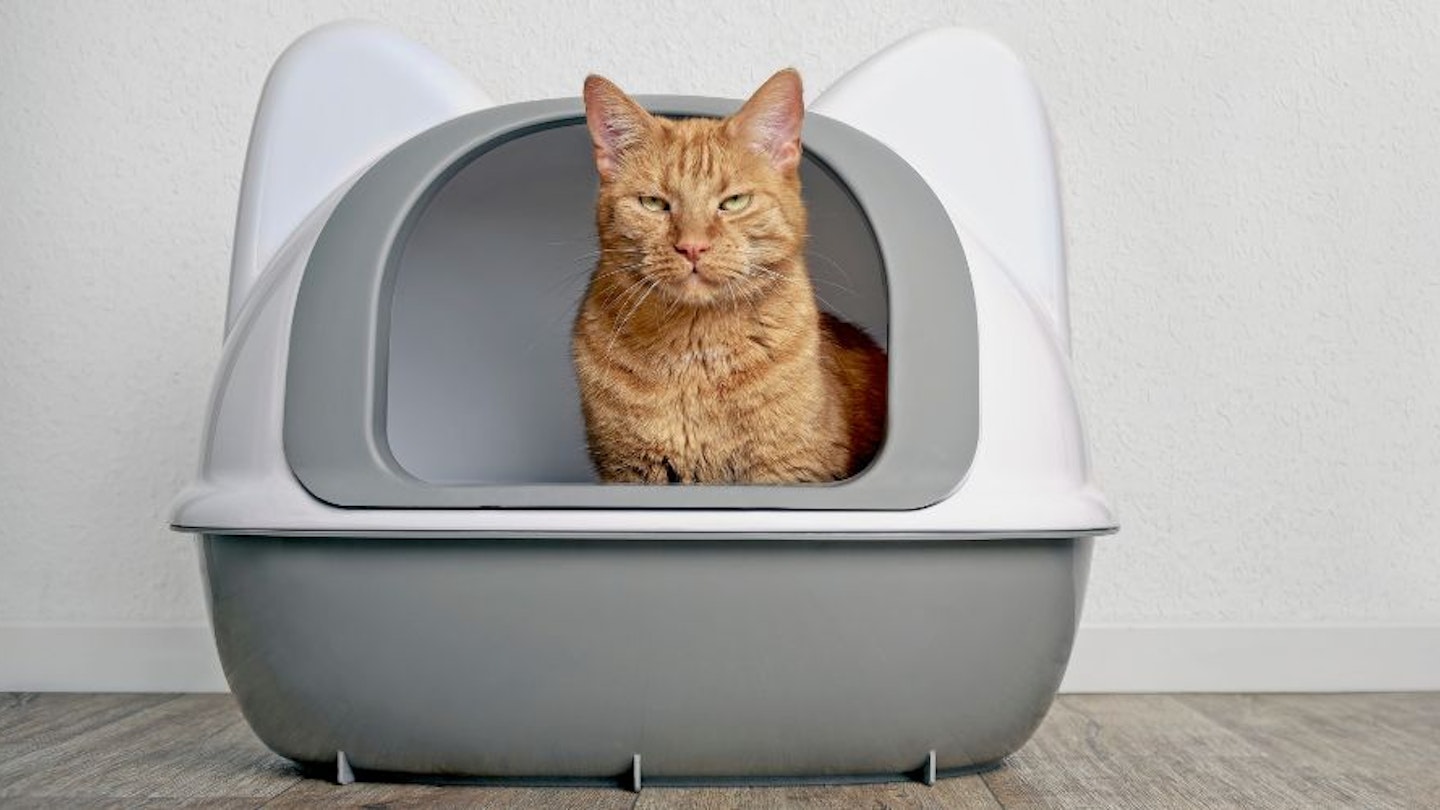We all know the pain we experience when we're having trouble going to the toilet and it's the same for our kitties, which is why we've searched the web for the best cat food for constipation you can buy in the UK to bring them some relief. Choosing a cat food that is high in fibre should help to lessen their symptoms and get their bowel moving again in no time at all.
There are a number of reasons why cats can become constipated, which is why we reached out to Take A Break Pets' resident vet, Dr Michael Lazaris, for his expert advice on the causes. "Constipation in cats can be caused by dehydration, a lack of fibre in the diet, obesity, hairballs (or other foreign bodies), arthritis or spinal issues and some diseases like kidney disease or hyperthyroidism," says Dr Michael. "If constipation is left untreated it can cause irreversible damage to their colon, which can have devastating consequences, so it's important that you take your kitty to the vet so they can find out why this is happening."
Best cat food for constipation at a glance:
• Best premium dry cat food for constipation: Royal Canin Veterinary Health Gastrointestinal Fibre Response Adult Cat Food - view on Pets at Home
• Best premium wet cat food for constipation: Royal Canin Veterinary Health Gastrointestinal Wet Adult Cat Food - view on Pets at Home
• Best symptom-reducing dry cat food: Hill's Prescription Diet Gastrointestinal Biome Dry Cat Food with Chicken - view on Viovet
You can find more expert advice from Dr Micheal in our FAQs section at the bottom of this article, but one of the things he suggests may help, alongside making sure your kitty is as hydrated as possible, is switching your cat to a high-fibre diet. Dry or wet cat food with a high amount of fibre included can help to regulate bowel movements. You'll want to make sure it has the right balance of soluble and insoluble fibres to help make stools easier to pass and improve their consistency.
Of course, as with any food we pick for our pets, you'll want to make sure it's nutritionally balanced and tasty, too. This is why all of our best cat food for constipation top picks are packed full of the essentials your kitty needs to be happy and healthy, with ingredients that are sure to get them purring at mealtimes.
Best cat food for constipation UK
Best premium dry cat food for constipation
 Pets At Home
Pets At Homewww.petsathome.com
Boasting a highly digestible formula, the Royal Canin Veterinary Health Gastrointestinal Fibre Response Adult Cat Food is specially formulated to support the nutritional needs of cats with digestive issues. It mainly contains soluble fibres, such as psyllium, which can support healthier digestion in cats with constipation by softening their stools.
Customer review: "My 12 year old cat would cry while passing small hard poops, she would only go once a week, this food has fixed her, no problems now and she goes everyday, no crying."
Pros
- Has a good mix of nutrients and fibres
- Helps to soften stools
Cons
- Not suitable in cases of obstipation, obstructive megacolon, dehydration
Best premium wet cat food for constipation
 Pets At Home
Pets At Homewww.petsathome.com
Highly palatable to cats with its meaty chunks in a succulent gravy, your kitty will lap this Royal Canin Veterinary Health Gastrointestinal Wet Adult Cat Food up. The high energy content helps to reduce the volume of your cat's meal and decrease their intestinal load. It has the right balance of fibres as well as prebiotics to contribute towards healthy digestion.
Customer review: "Cat has a stomach issue and so the vet has recommended this as a gentler more healthy food than our normal packets. Cat seems happy to eat it and can be fussy so hoping he keeps eating this without issue"
Pros
- If your cat's appetite has decreased, the aroma and texture will entice them in
- Supports healthy digestion while also meeting your cat's varied nutritional needs
Cons
- Only one customer review
Best gastrointestinal dry cat food
 Pets At Home
Pets At Homewww.petsathome.com
With a limited number of protein sources, the Pro Plan Vet Diet EN Gastrointestinal Dry Cat Food will help to minimise adverse intestinal reactions. It's specially formulated with a blend of insoluble and soluble fibres with added prebiotics to help improve intestinal health. This highly digestible food is suitable for cats and kittens and aims to reduce the workload of a compromised gut.
Customer review: "My vet recommended me to try my cat with gastrointestinal food after a few bouts of suspected pancreatitis. So I opted for this one. I was a bit dubious at first as my cats have always had whiskers biscuits. But both of my cats absolutely love them! And touch wood - no vets trips up to now! Fingers crossed they do the trick!"
Pros
- Suitable from six weeks of age
- Aids with the reduction of acute intestinal absorptive disorders
Cons
- Not designed to be used long term
Best symptom-reducing dry cat food
 VioVet
VioVetwww.viovet.co.uk
Clinically shown to promote regular healthy stool in as little as 24 hours, Hill's Prescription Diet Gastrointestinal Biome Dry Cat Food with Chicken will help to reduce the risk of recurrence, too. It's made with an ActivBiome+ ingredient which has been shown to rapidly nourish beneficial gut bacteria and support a healthy GI microbiome balance.
Customer review: "My cat Pepe developed a sensitivity to his usual cat biscuits at the age of 14. I saw Hills Gastrointestinal Biome dry cat food advertised so thought I'd give it a go. With 24 hours Pepe's tummy was back to normal. So we are both very pleased with the result. It is quite expensive but he eats it all so no waste."
Pros
- Unique blend of prebiotic fibres to promote regular bowel movements and help balance digestive function
- Contains high levels of Omega-3
Cons
- It's not recommended for kittens and pregnant or nursing cats
Best symptom-reducing wet cat food
 VioVet
VioVetwww.viovet.co.uk
If your kitty prefers wet food, give Hill's Prescription Diet Feline Gastrointestinal Biome Wet Food a try. It offers the same benefits as the dry food above but is formulated with tender meaty chunks in gravy in the pouches, or as a chicken stew blend in the tins. Both are sure to get your cat purring with delight at mealtimes.
Pros
- Available in tins or pouches
- Clinically shown to promote regular healthy stool in as little as 24 hours and help reduce risk of recurrence of digestive upsets
Cons
- It's not recommended for kittens and pregnant or nursing cats
Best hairball dry cat food to aid with constipation relief
 Sainsbury's
Sainsbury'swww.sainsburys.co.uk
Prevent constipation caused by hair build-up inside their intestines with a hairball-reducing food, like this Purina One Coat And Hairball Dry Cat Food one. It's made with fibres that will help carry away hair from the stomach and aims to limit excessive shedding in the first place, thanks to the high-quality protein and levels of key nutrients included.
Customer review: "Excellent product both my cats love this and I’ve seen such an improvement in their coats too. Noticeably less problems with fur balls too which is an added bonus"
Pros
- Helps maintain a healthy skin as B-vitamins and zinc are included
- Improves gut microbiome balance with chicory prebiotic
Cons
- Packet isn't as big compared to other bags of food on our list
Best premium hairball cat food to aid with constipation relief
 VioVet
VioVetwww.viovet.co.uk
Available in both gravy-filled meaty pouches or crunchy dry kibble, you can get both wet and dry food versions of the Royal Canin Hairball Care Cat Food to help reduce discomfort, sore stomachs and digestive problems caused by swallowing large quantities of hair. The insoluble fibres include help to naturally stimulate a healthy intestinal transit to stop hair from blocking their intestines and causing constipation.
Customer review: "This product has proved very useful for an older cat who was beginning to have digestion problems. She is a shorthair but has benefitted from the extra fibre in the food."
Pros
- Available in both a wet and dry food formula
- Stimulates the intestinal transit passage to help remove excess hair that would usually remain in the stomach
Cons
- Not designed for cats under one year and over seven years
Best cat food for constipation UK FAQs
If you're worried about your cat being constipated and have some questions about how you can offer relief or prevent them from suffering in the first place, we put some frequently asked questions to Dr Michael to give you the answers you need.
What food helps a constipated cat?
"If your cat is on dry cat food and doesn't like to drink much, switching to a wet, high-fibre diet can definitely help. I also like to add in a course of cat-friendly probiotics during the switch to improve their gut bacteria," says Doctor Michael.
"If you think your cat suffers from hairballs, you can give them a paste once a day which helps the fur move freely along their digestive tract. Equally, there is hairball-specific cat food you can try."
What can I give my cat for constipation?
When asked what to give cats for constipation, Dr Lazaris said: "If helping them stay better hydrated isn’t helping, you can try to soften their faeces by giving them some lactulose twice a day. However, if the constipation is this bad, you should seek advice from your vet. They can also tell you how much to give based on their weight.
"Some cats need an enema given rectally, which can work quickly to help alleviate constipation. In more severe cases, cats need to be hospitalised on intravenous fluids and to have a manual enema under general anaesthetic."
How can you prevent constipation in cats?
"Make sure your cat is adequately hydrated. If they only eat dry food, you should have several water sources or try a water fountain to encourage drinking. I personally feed my cat, Otto, dry food in the morning and wet food at night, along with fibre, salmon oil and probiotics, which seems to do the trick!
"For hairball sufferers, you should groom your cats daily. The more you remove with a brush, the less they swallow! And make sure there are no underlying causes of constipation. Other causes like kidney and thyroid disease should not be left untreated."
This article contains expert advice from Dr Michael Lazaris. Dr Michael is a small animal vet and co-director of his practice, Vets on the Common, in London. You can also find him on Instagram and TikTok, where he shares all the latest pet advice and adorable patients he treats.
Rosie Floyd is a Homes and Garden Product Writer for Take A Break Pets, specialising in all things dogs. She grew up always having at least one dog as part of the family and has experience in owning a variety of breeds, including Labradors, Cockapoos and Yorkshire Terriers.
